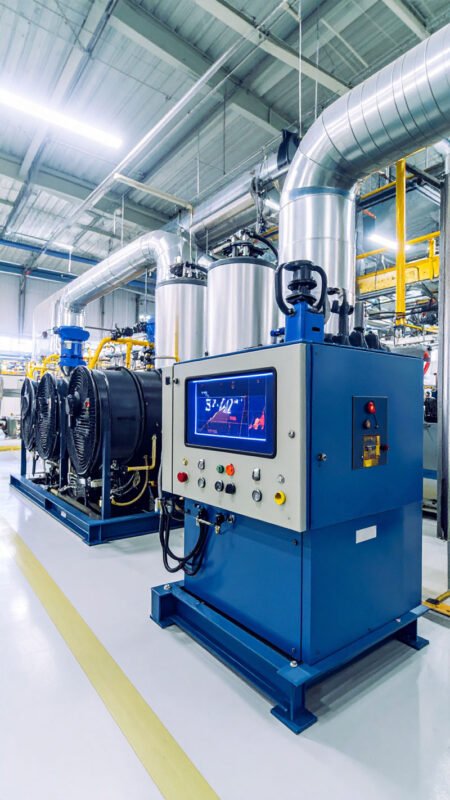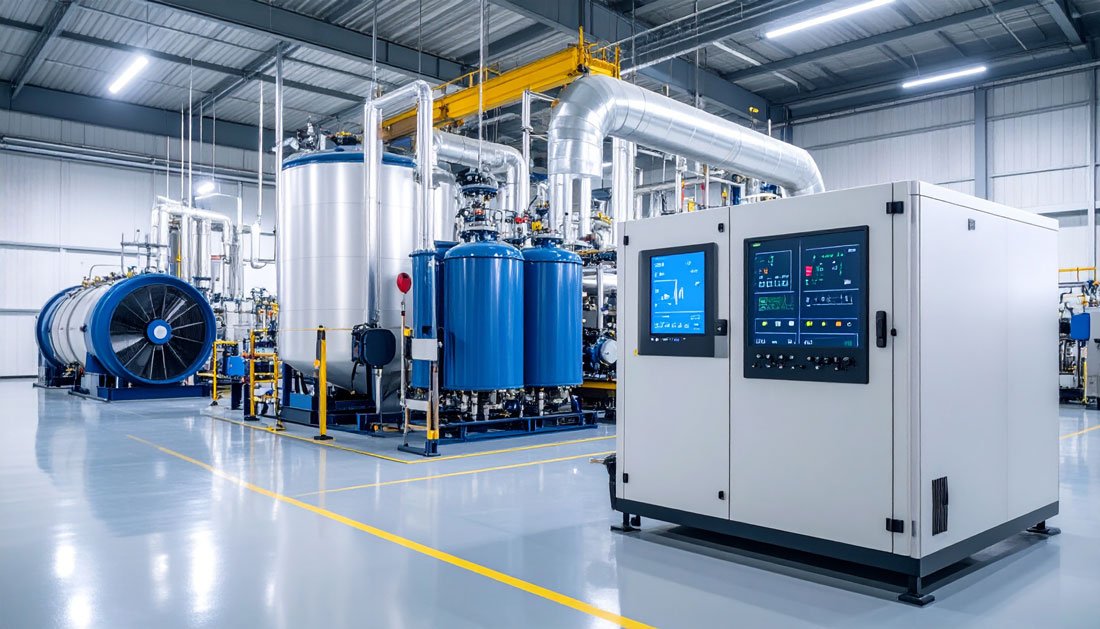The Importance of Differential Pressure Monitoring in Filtration Systems
In industrial filtration systems, differential pressure (ΔP) refers to the difference between the inlet and outlet pressures of the filter. This pressure difference provides direct insight into the health of the filtration system. Accurate monitoring of differential pressure is critical for energy efficiency, filter lifespan, and maintenance planning.
 Importance for Energy Efficiency
Importance for Energy Efficiency
High differential pressure indicates increased resistance in the system, causing fans to consume more energy. If differential pressure is not monitored, the system may overwork, leading to higher energy costs.
Solution:
Automatic alert systems should be used to notify when differential pressure exceeds preset thresholds. Filtag systems are designed to minimize energy consumption and can be integrated with pressure monitoring systems.
Preventing Failures and Ensuring Timely Maintenance
A sudden increase in differential pressure may indicate clogged filter bags or a malfunctioning cleaning system. Likewise, a sudden drop may point to torn filters or leaks. Monitoring these values enables early detection of faults.
Solution:
With pressure tracking, filter replacement times can be planned in advance, preventing unexpected shutdowns. Filtag also provides digital monitoring solutions to support users in this planning.
Preserving Filter Life and System Efficiency
Filters should be replaced based on clogging levels. Exceeding a certain differential pressure threshold signals that the filter is no longer operating efficiently. Replacing filters too early or too late can negatively affect both filter life and operational efficiency.
Solution:
Differential pressure data provides an objective basis for deciding when to replace filters. Thanks to their long-lasting design, Filtag products operate for longer durations with low differential pressure (ΔP).
Conclusion
Differential pressure monitoring is essential for operational success in baghouse filtration systems. To reduce energy costs, optimize maintenance intervals, and maintain filtration performance, these values must be continuously monitored. Filtag simplifies this process through smart systems and engineering solutions, delivering maximum efficiency to its users.

